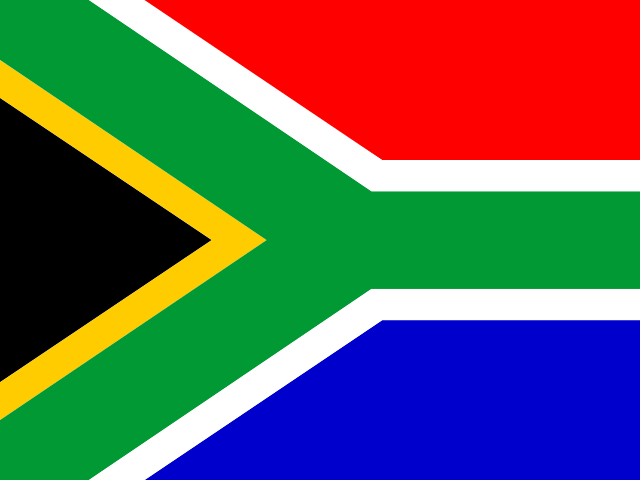
South Africa
The South African media landscape is subject to a hollowing out of the resources of news organisations, including retrenchments and the closing down of news titles. More positively in an election year, trust in media is holding steady despite lapses in editorial rigour by some publications, and there are indications that news subscriptions and memberships are maintaining traction with consumers.
Two newspapers ceased publishing: the 125-year-old Pretoria News and the almost 80-year-old Weekend Post. The two media groups that owned them, Independent Media and Arena Holdings, also embarked on processes of retrenchment. Independent said they were aiming to cut their staff by 40%, and Arena implemented a restructuring process without specifying the number of people affected. The South African National Editors Forum (SANEF) lamented the effect that these cuts are having on the diversity and plurality of voices in newsrooms.
The Audit Bureau of Circulations (ABC) reported a year-on-year decline of 7.4% for the collective circulation of its print members. Tellingly, ABC’s membership dropped from 448 in 2022 to 403 at the end of 2023. The SABC's TV audience ratings have declined by over 40% over the past seven years, and the public broadcaster has over R1.3bn debt due to signal distributor Sentech by April 2025, with losses growing across its wider operation.
Top digital news site News24 reported in January 2024 that they had broken the 100,000-subscriber mark, making it the largest news website in Africa in terms of paid subscriptions. The independent Daily Maverick has grown its paid membership base to 27,500. Other news organisations are less open about their subscription figures. In another positive sign, broadcaster Eyewitness News launched a new on demand ‘daily English and IsiZulu TV News bulletins’ as part of a multiplatform strategy.
In an attempt to address the straitened commercial circumstances of news media, as well as the perceived lack of accountability by big digital platforms, the Competition Commission of South Africa initiated the Media and Digital Platforms Market Inquiry (MDPMI) to investigate the distribution of media content on digital platforms, and to interrogate the market for advertising technology. The Commission said that its purpose was to determine if there are any features that may be adversely affecting competition or undermining the purposes of the Competition Act. The MDPMI heard submissions from over 40 stakeholders, including SANEF, who said that big tech firms ‘must be held to more stringent rules for the publishing and distribution of news content, similar to rules governing South African media houses’, and that access to credible news should be considered as a human rights issue, not only as a matter of commercial competition. X was a notable absentee among the digital platforms represented, which included Meta, Google and Microsoft.
Another area addressed was the impact that AI could have on the information system, and the potential for algorithmically enforced bias. Some newsrooms are, however, embracing the potential of Generative AI to enhance and disseminate their own news production. Daily Maverick Summaries, for example, uses AI to generate headlines and one-paragraph synopses of their longer articles.
Harassment of journalists – online and physically – continues to increase, with women journalists experiencing the brunt of this. SANEF said they were ‘horrified’ by the growing trends, which they said were aimed at stopping journalists from reporting on important stories. Bongani Mbatha, a veteran photojournalist, was murdered in July 2023, the first killing of a journalist since 2014, although there is still no clarity on the perpetrator or motive behind the shooting.
Some compromised news organisations continue to produce and disseminate misinformation, resulting in an unedifying to and fro between media titles, with the most obvious example being Independent Media’s ongoing publishing of misinformation about News24 and Daily Maverick, apparently in retaliation for investigative pieces by those titles.1
Given that this year’s Digital News Report shows that concern about misinformation in South Africa has grown to 81% (+6), well above the global average of 59%, this internecine warfare has the potential to erode trust in news, precisely the effect that bad actors intend. A possible corollary to this is that those expressing at least some interest in politics by South African consumers has dropped from 81% in 2021 to 70% in 2024, not ideal in an election year.
South African media appears to be on a cusp. Resources are strained, and business models under huge pressure, but at the same time consumers seem inclined to both trust reputable news sources and also be attuned, as active participants in the news ecosystem, to the potential for mis- and disinformation.
Chris Roper
Deputy CEO, Code for Africa
Changing media
Use of TikTok is growing fast with 28% (+6pp) saying they use it for news. Online, print, television, and some other social media have all dropped as sources of news, with print now at 25%.
Trust in news overall
57%
=4/47
Trust in news stays level at 57%, after 2023’s 4pp drop from 2022’s high of 61%. Trust in news brands also appears to be stable in most cases, despite some high-level examples of conscious disinformation campaigns by Independent Media titles, as well as politically motivated attacks on the media. As always, trust and trustworthiness are not necessarily aligned.

